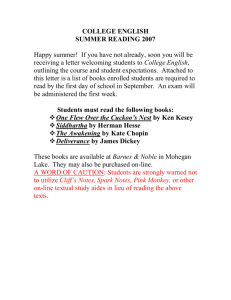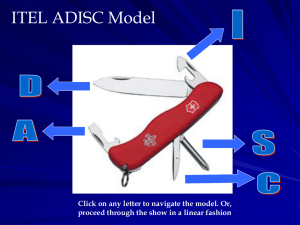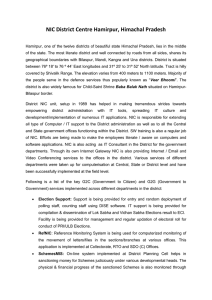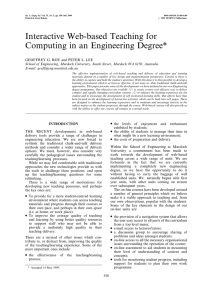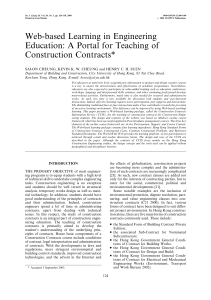grey literature and computational linguistics from paper to net
advertisement
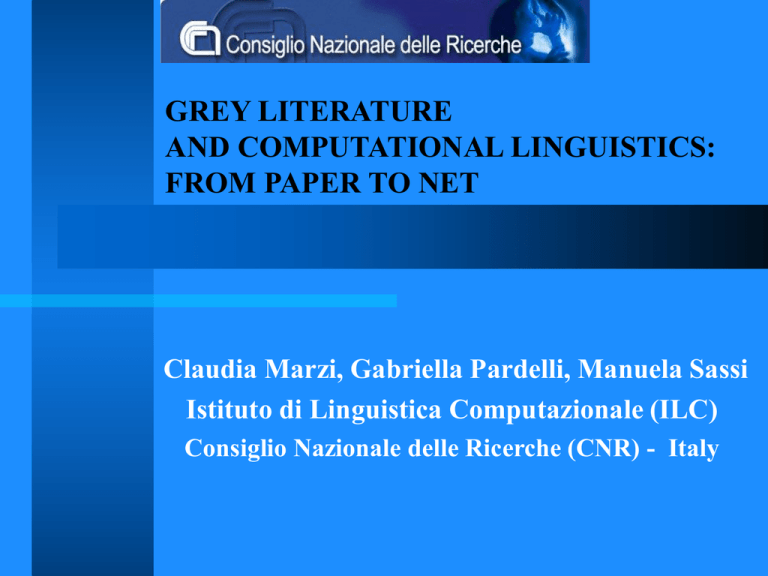
GREY LITERATURE AND COMPUTATIONAL LINGUISTICS: FROM PAPER TO NET Claudia Marzi, Gabriella Pardelli, Manuela Sassi Istituto di Linguistica Computazionale (ILC) Consiglio Nazionale delle Ricerche (CNR) - Italy computational linguistics (CL) and language inquiry Computational Linguistics (CL) has changed the way we look at human language as a subject of scientific inquiry , shifting emphasis from abstract knowledge to real usage in CL, text understanding is “doing things with words” and requires the ability to master a heterogeneous system of skills based on the processing of complex information structures (e.g. reading, marking-up, summarizing, retrieving, classifying etc.) CL and the web the growing popularity of the web as an unbounded repository of unstructured text information led to an increasing interest in the application of CL methodologies to document access and retrieval web users can take advantage of CL tools and methodologies to get intelligent and selective access to on-line text documents – minimizing problems of information overflow – avoiding the strictures of pre-indexed document repositories CL and the web in Italy over the last five years, more and more Italian Universities have introduced CL courses into their Humanities curricula CL courses have the potential of addressing a much wider demand for a more aware use of the web than a purely academic one the role of grey CL literature to make it up for comparative shortage of white CL literature in Italian, CL courses have sprouted dedicated web sites providing tutorials, exercises, power-point presentations and other teaching materials on-line materials offer introductory information for a better understanding of: – aspects of computer architecture and functioning – issues of digital text encoding and document representation – aspects of text browsing with personalized search patterns – issues of document mark-up and classification – fundamentals of document content indexing the role of grey CL literature (II) provide a meeting point between academic information providers and non academic information consumers provide remote on-line access to actual course materials modify the general public attitude towards computer-based information access prompt more personalized ways of accessing web-based information case study: “Informatica Umanistica” course overview – goals – prerequisites full set of course slides power point full set of teaching material offered during the course on-line exercises downloadable documents links to websites of interest and downloadable software access to on-line tools for Italian text processing concluding remarks CL access & retrieval of web-based info – vast majority of web-based knowledge available in huge on-line repositories of electronic text documents – automated, intelligent access of such repositories is precondition to their existence – web users want to access this info in an increasingly more dynamic, goal-oriented & flexible way – such demands will be met through integration of knowledge-rich and language-intelligent technology – prompts more aware ways of searching and accessing information on the web – sets high standards for information dissemination and sharing

